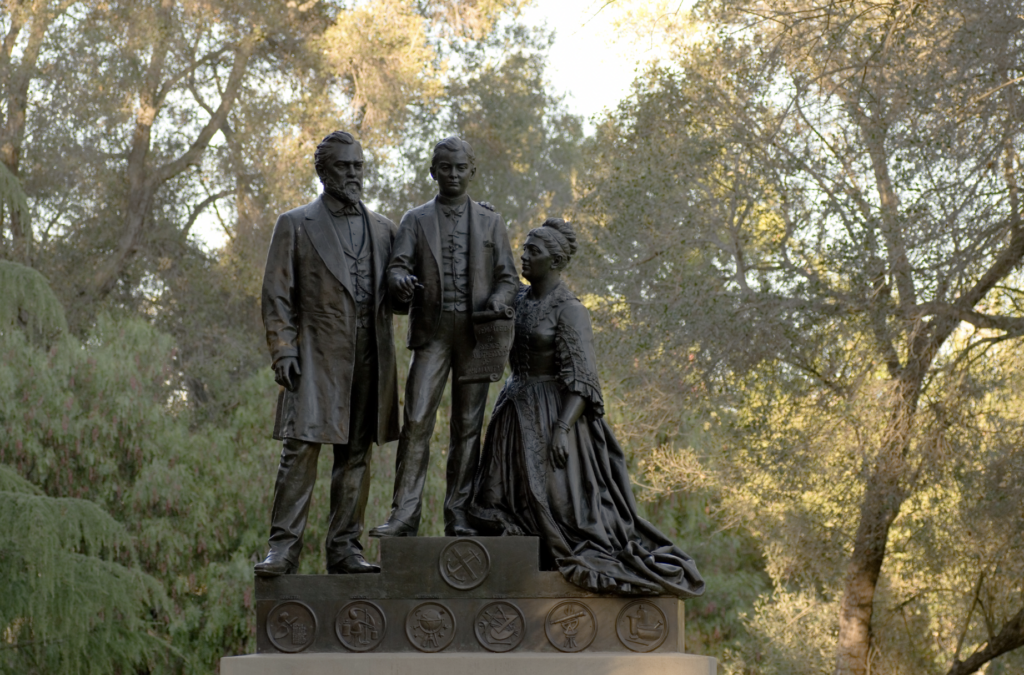Are the Kids Alright?

I read parts of the Atlantic article on how Israel-Palestine issues are sorting out at Stanford, and overall found the online reaction a bit puzzling; it’s not a very interesting treatment of the subject but it’s not at all worthy of the rage that has been unleashed against it, a rage all the more puzzling as it seems to be led by folks who absolutely, positively declared that they would cancel their Atlantic subscription for good several years ago and in the ensuing period have either changed their minds or have developed innovative new techniques for evading paywalls. Anyway, I wouldn’t recommend the article to anyone but I also doubt that I’d take time out of a my precious day to denounce it as the genocidal project of a murderous, hate-filled nepo baby etc. etc.
But I digress. My main point here is that the situation described by the article at Stanford (and by a variety of different articles of greater or lesser reliability on different elite educational institutions) bears effectively zero resemblance to actual facts on the ground at the University of Kentucky. Protests here have been minimal; threats have definitely happened (both directions) but have also been minimal and manageable. Campus is not dominated by groups of roving protestors; lectures and speeches on the subject of Israel and Palestine have not been disrupted; campus has not divided itself into warring camps. To be sure, the administration has been concerned about such disruption, but since 10/7 nothing has really developed to justify that concern. Students in my courses (which are international affairs in orientation) have opinions about Israel-Palestine and work those opinions out verbally, sometimes in confrontational ways, but there is nothing even remotely resembling the dynamics at Stanford and other elite institutions.
Indeed, not long after 10/7 I field a phone interview from a Boston newspaper attempting to gauge levels of campus rage about Israel-Palestine. I reported pretty much the above; folks were following the events, some people cared, but the events did not in any way dominate campus politics or disrupt campus life. The journalist who interviewed me seemed a bit surprised by that (elite universities were more her beat), and did not, as far as I can tell, ever write the promised article discussing the breadth and depth of campus unrest over Israel-Palestine. I doubt my comments had much to do with that; I think she simply found that there wasn’t much of a story outside of a few elite universities and a handful of other colleges and universities with very specific demographic reasons for caring a lot about Middle East politics.
This has reaffirmed to me that for certain communities within the United States, the Israel-Palestine conflict has very specific symbolic meaning. If you are an undergraduate at an elite college or university in the US, having a strong opinion on Israel-Palestine seems to be an appropriate thing to have, if not an absolute necessity to managing college life. If you’re an undergrad at UK (not exactly a podunk institution) that expectation either doesn’t exist or exists at such a lower level that the macro effects on campus life are much different. Opinions about Israel-Palestine become more about symbolic identification than about any specific evaluation of policy or events. This, combined with the affection of youth politics for the languages of justice and righteousness, is probably why we see so many undergrads at these elite institutions stanning for the objectively horrible people who run Hamas and the Israeli government; they are performing the roles they are expected to perform.
It goes without saying that for someone who studies the phenomenon of international political violence professionally, I find all of this to be awfully frustrating. Israel-Palestine is to international relations what St. Patrick’s Day is to an alcoholic; amateur night, when every idiot is not only entitled to an opinion but absolutely must tell you about it in the most abrasive terms possible. But the divide between elite and non-elite campus engagement with Israel-Palestine is deeply interesting to me, and I think that it’s a divide that has largely been missed by media institutions that a) are headquartered in places like Washington, New York, and San Francisco, and b) are populated by graduates of elite colleges and universities. Further, I think this distorts how we talk about the domestic political impact of the Gaza War; there are a lot of (even young, even minority) voters who don’t give a damn about Israel-Palestine and won’t even consider it when contemplating whether or how to vote.
I am curious, however, how universal these observations may be. Folks working in higher ed, is your campus more of a Stanford (deep, conflictual engagement) or a UK (meh)?


